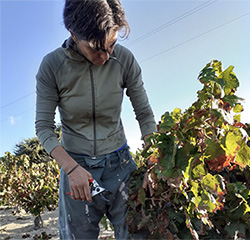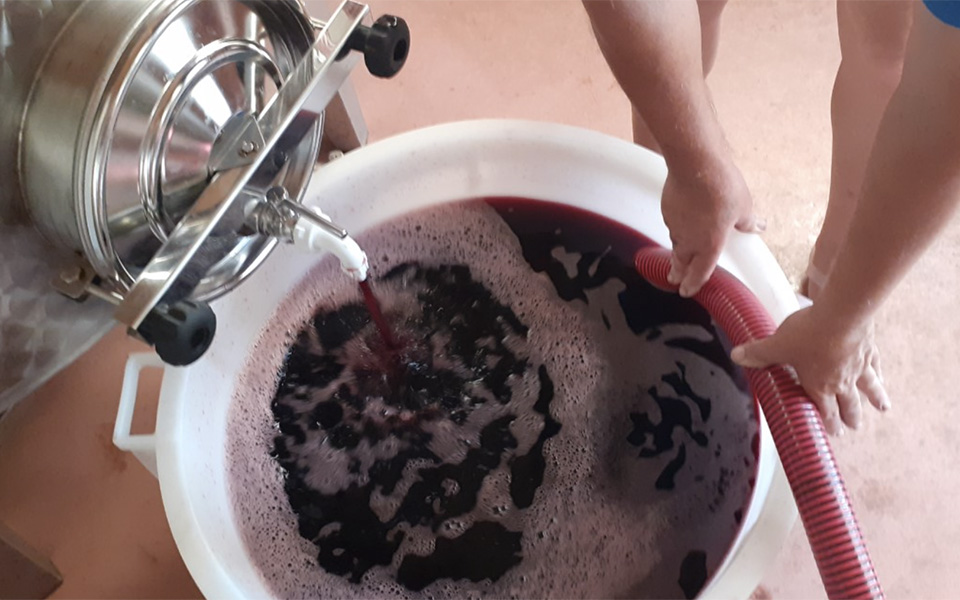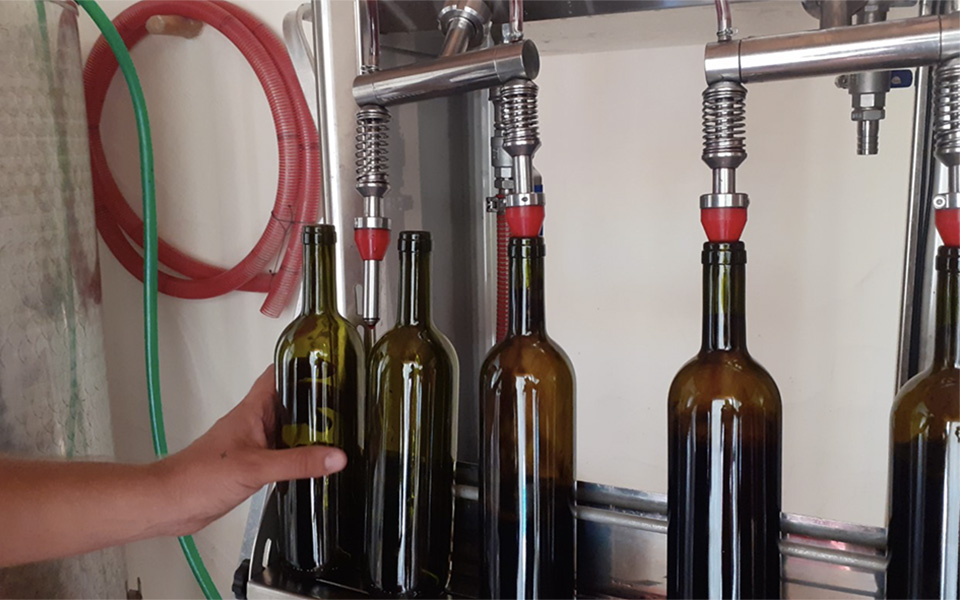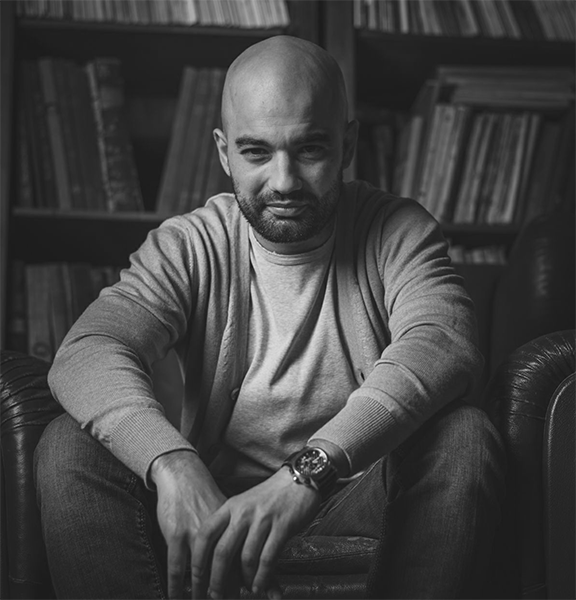
La Casa di Sophia
"After 10 years living abroad, I strongly felt the desire to return to Sardinia and build a new bond with the territory. The place where this happened is Sant’Antioco, an island of particular naturalistic beauty, in particular a vineyard by the sea. The wine of La Casa di Sophia is the product of the land, in balance with its nature”.
It could be said that the wine of La Casa di Sophia is born from the “nostos”, the principle of the return to the homeland of Ulysses and Homer. A return to the land that welcomes the roots of the individual and nourishes the grains of its bunches. Luisa Camoglio visits Holland for the first time with the Erasmus project. After graduation, he completes a PhD and practiced as a doctor for 10 years. "In 2006 I felt the need to return to Sardinia not only to visit friends and relatives, but to create a small world that interacted with the community and took part in the Sardinian economy in a sustainable way, connecting my island with Europe. All this has been synthesized in the La Casa di Sophia wine”.
The theater chosen for the return, fourteen years ago, is Calasetta, a small town on the island of S. Antioco, an island within the island. For the first two years, Luisa Camoglio asked the former owner for advice, in the meantime studying with the attitude of someone who knows how to do scientific research and who applies science to care. She interacts with the most experienced winemakers, devours the global knowledge that the internet offers on organic farming at a time when the concept of sustainability exists, without prevailing. "Wine is a complex product, it never gets boring, there is always something new to discover". All the discoveries of La Casa di Sophia are online, so that sustainable knowledge spreads and becomes a constellation of communities.

The blog written by Luisa Camoglio describes in detail the agricultural and oenological techniques: "powdered and wettable sulfur (to contain Oidium and Escoriosis), copper (within the maximum limits allowed by law to contain Peronospera), the bacterium Bacillus Thuringiensis, to be applied according to the collection of specimens of vine moth in pheromone traps ... Other techniques used on the farm are fertilization with organic manure or organic fertilizer and green manure (planting of plants from biological); three or four times a year the plowing and milling of the soil (with shredding of the legume plants in spring, to enrich the soil with organic substances); stripping by hand (eliminating the herbs near the trunk of the vines) and finally the ancient practice of planting the pruned offshoots to restore the missing vines (genetically identical to the 'mother' plants)".
The old barn of the rural building, a typical construction of the countryside of Calasetta, has been renovated (now the storage cellar) and a new architecturally similar construction has been built with environmentally friendly materials and technology. Here the Carignano grapes ferment and when the flower wine drips, it is transferred to the cellar where it matures and is then bottled.
"The Ministry of Agriculture, in the decree of June 2020, defined the cultivation of the small islands as 'heroic'. Our vines are exposed to the salt of storm surges, strong winds and high temperatures. We experience climate change on a day-to-day basis. The answer can only be collective”, explains Camoglio. Response that was not long in coming, at least in Calasetta. With the support of some private individuals, La Casa di Sophia has implemented the shared development project “Adopt the Spiaggia Grande vineyard”. On the dunes of Spiaggia Grande, an abandoned vineyard of about 70 years has now new life. Viticulture has become an opportunity for knowledge and practice, for beauty and celebration: "Climate, energy, water: these are such vast themes that we can only solve them together". With many, countless Sophia's Houses.

Contacts

La Casa di Sophia
"After 10 years living abroad, I strongly felt the desire to return to Sardinia and build a new bond with the territory. The place where this happened is Sant’Antioco, an island of particular naturalistic beauty, in particular a vineyard by the sea. The wine of La Casa di Sophia is the product of the land, in balance with its nature”.
It could be said that the wine of La Casa di Sophia is born from the “nostos”, the principle of the return to the homeland of Ulysses and Homer. A return to the land that welcomes the roots of the individual and nourishes the grains of its bunches. Luisa Camoglio visits Holland for the first time with the Erasmus project. After graduation, he completes a PhD and practiced as a doctor for 10 years. "In 2006 I felt the need to return to Sardinia not only to visit friends and relatives, but to create a small world that interacted with the community and took part in the Sardinian economy in a sustainable way, connecting my island with Europe. All this has been synthesized in the La Casa di Sophia wine”.
The theater chosen for the return, fourteen years ago, is Calasetta, a small town on the island of S. Antioco, an island within the island. For the first two years, Luisa Camoglio asked the former owner for advice, in the meantime studying with the attitude of someone who knows how to do scientific research and who applies science to care. She interacts with the most experienced winemakers, devours the global knowledge that the internet offers on organic farming at a time when the concept of sustainability exists, without prevailing. "Wine is a complex product, it never gets boring, there is always something new to discover". All the discoveries of La Casa di Sophia are online, so that sustainable knowledge spreads and becomes a constellation of communities.

The blog written by Luisa Camoglio describes in detail the agricultural and oenological techniques: "powdered and wettable sulfur (to contain Oidium and Escoriosis), copper (within the maximum limits allowed by law to contain Peronospera), the bacterium Bacillus Thuringiensis, to be applied according to the collection of specimens of vine moth in pheromone traps ... Other techniques used on the farm are fertilization with organic manure or organic fertilizer and green manure (planting of plants from biological); three or four times a year the plowing and milling of the soil (with shredding of the legume plants in spring, to enrich the soil with organic substances); stripping by hand (eliminating the herbs near the trunk of the vines) and finally the ancient practice of planting the pruned offshoots to restore the missing vines (genetically identical to the 'mother' plants)".
The old barn of the rural building, a typical construction of the countryside of Calasetta, has been renovated (now the storage cellar) and a new architecturally similar construction has been built with environmentally friendly materials and technology. Here the Carignano grapes ferment and when the flower wine drips, it is transferred to the cellar where it matures and is then bottled.
"The Ministry of Agriculture, in the decree of June 2020, defined the cultivation of the small islands as 'heroic'. Our vines are exposed to the salt of storm surges, strong winds and high temperatures. We experience climate change on a day-to-day basis. The answer can only be collective”, explains Camoglio. Response that was not long in coming, at least in Calasetta. With the support of some private individuals, La Casa di Sophia has implemented the shared development project “Adopt the Spiaggia Grande vineyard”. On the dunes of Spiaggia Grande, an abandoned vineyard of about 70 years has now new life. Viticulture has become an opportunity for knowledge and practice, for beauty and celebration: "Climate, energy, water: these are such vast themes that we can only solve them together". With many, countless Sophia's Houses.

Contacts
Our voice from the territory

Legal head office: c/o Studio Associato Conti-Via Piemonte, 33-09127 Cagliari (Italy) - Headquarter: Via Nazario Sauro 1, 09123 Cagliari (Italy)
(+39) 070 0950439 | info@medseafoundation.org | medsea@pec.medseafoundation.org
Photos ©: Andrea Alvito, Maurizio Naletto
MEDSEA Logo designed by Stefano Asili
